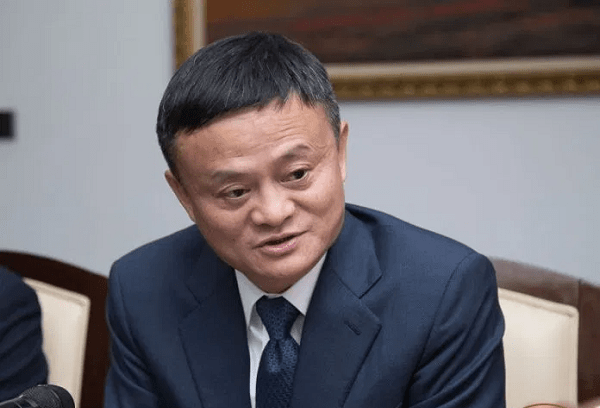
Why is Jack Ma incubating entrepreneurs in Africa?
Ten African entrepreneurs recently took home a total of US$1 million after they won a contest featuring a reality TV show named “Africa's Business Heroes”.
The entrepreneurs that took part in the contest indeed deserve to be called heroes. The top winner is a Nigerian lady dedicated to tackling blood shortage in her country.
The second winner, a PhD graduate from University of Geneva, through his company has been conducting scientific tests on behalf of African scientists who don’t have access to such facilities, and the mission of the third winner’s startup is to supply clean and safe water in Rwanda.
The contest is part of Jack Ma’s Africa Netpreneur Prize Initiative which was launched last year with a goal of incubating 100 African entrepreneurs over a decade, and Ma himself has served as a judge in the contest.
When Ma stepped down as Alibaba’s chairman in September, he said he would spend more time on education. It now looks like he is sharing with young entrepreneurs his experiences in doing business.
“Africa's Business Heroes” is reminiscent of what was going on in China more than a decade ago, when a similar TV show called “Win in China” reached 200 million audiences through broadcast, re-broadcast, internet and DVD. Because of the show’s popularity, entrepreneurs swiftly became heroes in the minds of many people in China.
Appearing on the show enabled Song Wenming, the top winner of the show’s first season in 2006, to secure 10 million Yuan (over US$1.4 million based on today’s currency exchange rate) in venture capital investment for his human resources company. After watching the show, a close friend of the show’s producer reportedly made a phone call to her and said she was considering quitting her job at a state-owned company to start her own business because she wanted a new life.
Having served as a judge in “Win in China”, Jack Ma is obviously aware of the entrepreneurial heat the show generated in China at the time. As a matter of fact, Alibaba benefited from that momentum in one way or another. When “Win in China” was in its second season in 2007, Alibaba’s online business-to-business site Alibaba.com, which counted on small and medium-sized firms as main users, raised nearly $1.5 billion in one of Hong Kong’s most popular IPOs in that year. By creating the African version of “Win in China”, Jack Ma is helping to stoke in Africa an entrepreneurial heat similar to what was once seen in China.
“Africa's Business Heroes” reportedly had around 10,000 applicants from 50 African nations.
But apart from pursuing his dreams in education, is Jack Ma in fact seeking a bigger role that Alibaba can play in Africa’s booming digital economy? Yes and no.
It is of course naive to assume that Jack Ma is selfless in his Africa mission, and there is no doubt that his incubation of African startups will in return benefit Alibaba’s Africa operations in many ways.
Alibaba’s online portal AliExpress.com, which serves both businesses and consumers in Africa, is expected to gain a wider user base in the region if more startups sprout. And a prospect of continued growth in Africa’s digital payment sector probably means more opportunities for Alipay which has teamed up with Nigerian fintech startup Flutterwave to provide payment services in the trade between China and Africa.
But on the other hand, there are many signs that Alibaba has a very inclusive footprint in Africa. While the Chinese tech giant has certainly benefited from the inclusion of Rwanda into its electronic trade platform eWTP last year, Rwandan coffee farmers have enjoyed record-high sales in China after they gained access to Alibaba’s online marketplace Tmall through eWTP.
While AliExpress.com is reaching more Kenyan shoppers through its partnership with M-Pesa, the Kenyan mobile payment service is using the tie-up as leverage to expand beyond Kenya.
Most importantly, Alibaba appears to be happy to share its know-how with startups that, if managed well, may one day become serious rivals of Alibaba in certain sectors in Africa. African entrepreneurs have accounted for most of the participants in an e-commerce training programme that Alibaba has held regularly since 2017.
A senior manager of Rwandan e-commerce firm Davy Nshuti, told China’s Xinhua that an important thing he learned from the programme is to work with partners instead of competing.
The Founder and CEO of Kenyan online clothes retailer, Caroline Kuria, Sarai Afrique Fashion House, told China’s Global Times that she learned how to combine online and offline sales from the programme.
For years, China has been, through words and deeds, trying to convince the rest of the world that its economic activities in Africa have nothing to do with neocolonialism or debit trap diplomacy.
Jack Ma’s Africa entrepreneur programme is delivering a message that instead of seeking economic control, China’s business community is more interested in empowering in Africa a win-win, sustainable growth model where cooperation and competition coexist harmoniously.
The writer is a current affairs reporter and columnist with China Media Group.
